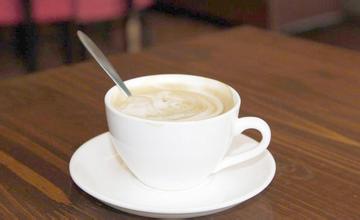Kenyan coffee producing area Manor characteristics Grading taste quality Grinding scale Introduction
Kenyan coffee producing area Manor characteristics Grading taste quality Grinding scale Introduction
Bourbon Bourbon was first brought to Kenya for cultivation. In the 1950s, Scott Laboratory, an agricultural research institution at that time, made unremitting efforts to select two excellent hybrids SL-28 and SL-34, overturning the long-standing bias that artificial breeding varieties were not excellent in natural varieties. SL-28 and SL-34 help Kenya coffee to form its own unique flavor characteristics and establish a perfect reputation in the coffee industry.
As with other coffee-producing governments, SL-28 and SL-34 have withstood the test of time, cultivating loyal fans for generations of Kenyan coffee. The Coffee Research Foundation has begun efforts to promote a new variety, Ruiri 11, and promoters have assured coffee lovers that the new variety still has the classic flavor of Kenyan coffee, but continued efforts have not won the approval of coffee drinkers, who agree that the new variety lacks taste and the future of Ruiru11 remains to be seen.
In addition to the prestigious traditional Arabica coffee, Robusta coffee is also produced in Kenya's western lowlands.
Kenya coffee growing methods
There are mainly two types of large farms (estates) and cooperatives (Cooperatives). The former generally has a larger planting area and independent coffee processing facilities. Most coffee production is done by a large number of small farmers, who form coffee cooperatives. Coffee cooperatives hire managers to oversee their members 'coffee processing, even to the point of managing each coffee tree.
Kenyan coffee is obviously more spicy and unrestrained than shade trees in many high-quality producing areas, and shade trees are not common. In addition, Kenyan coffee is rarely certified. Variety and environmental factors make pesticide use necessary. Organic certification, which is popular in other countries, is rare in Kenya.

Important Notice :
前街咖啡 FrontStreet Coffee has moved to new addredd:
FrontStreet Coffee Address: 315,Donghua East Road,GuangZhou
Tel:020 38364473
- Prev

Description of characteristics and flavor of coffee bean producing area in Elgon, Uganda
Uganda Elgon coffee bean producing area characteristic flavor description taste manor production area introduction Ugandan coffee beans have a unique flavor of delicate flavor, which is very suitable for making Italian and other flavors of coffee. More importantly, Ugandan coffee beans are strictly screened in accordance with the standards of the international market to ensure their high quality and pollution-free characteristics. Africa is the two main varieties of coffee, Arabica and Ro.
- Next

Description of roasting Flavor of Coffee beans in Sumatra
Description of roasting flavor of coffee beans in Sumatra Mandheling was once hailed as the best coffee bean in the world. Nowadays, as long as the raw coffee beans processed in Indonesia after this special process, they will be sold as Manteau coffee beans. Mantez is the Tapanuli from the northwest.
Related
- Detailed explanation of Jadeite planting Land in Panamanian Jadeite Manor introduction to the grading system of Jadeite competitive bidding, Red bid, Green bid and Rose Summer
- Story of Coffee planting in Brenka region of Costa Rica Stonehenge Manor anaerobic heavy honey treatment of flavor mouth
- What's on the barrel of Blue Mountain Coffee beans?
- Can American coffee also pull flowers? How to use hot American style to pull out a good-looking pattern?
- Can you make a cold extract with coffee beans? What is the right proportion for cold-extracted coffee formula?
- Indonesian PWN Gold Mandrine Coffee Origin Features Flavor How to Chong? Mandolin coffee is American.
- A brief introduction to the flavor characteristics of Brazilian yellow bourbon coffee beans
- What is the effect of different water quality on the flavor of cold-extracted coffee? What kind of water is best for brewing coffee?
- Why do you think of Rose Summer whenever you mention Panamanian coffee?
- Introduction to the characteristics of authentic blue mountain coffee bean producing areas? What is the CIB Coffee Authority in Jamaica?

